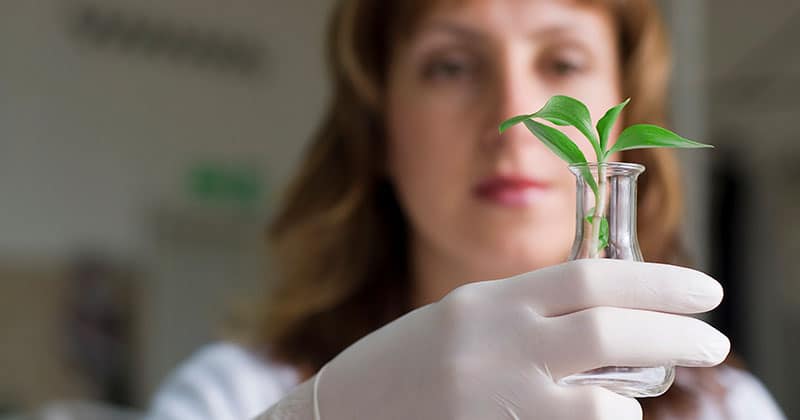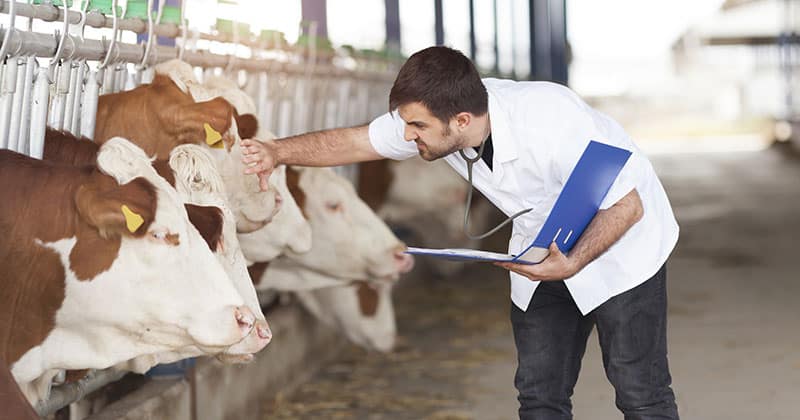Science Careers List
Let's be realistic about the kinds of science jobs you can do. This science careers list shows advertised job openings for graduates with a degree in the natural or physical sciences.
The most in-demand science careers are in environmental science, pharmacy and medical laboraratory science. To be successful, you normally need to do specialised postgraduate study.
Top 10 Science Careers
If you have a science degree, or are thinking about getting one, this careers list could be very useful. It shows the top 10 science careers by field. For each science field, you can also see examples of the types of jobs being advertised in Australia.
For the purposes of the careers list, "Science" refers to the "S" disciplines in STEM. In other words, we are interested in careers in the natural and physical sciences (think biology, chemistry and physics). The list isn't meant to cover technology, engineering and maths disciplines.
Nature of science jobs
As you may be aware, science-based work can be hard to get. Science is a core field of study that everyone should be interested in. However, careers where your job is to apply or build science knowledge are relatively uncommon.
The careers list shows realistic opportunities for a science career. Generally, they rely on doing specialist postgraduate study after a general science degree. Many people who finish university with a Bachelor of Science degree, and don't do further study, find employment in "non-science" roles in business or government.
The main job roles in a science career are:
- Researcher – expand the frontiers of scientific knowledge
- Technician – physically carry out tests and experiments
- Applied scientist – apply science knowledge for practical uses
- Science-based profession – such as pharmacy and veterinary practice
- Educator – teach science at a school or university.
1. Environmental Science
If you're fascinated by the workings of the environment, perhaps a career as an environmental scientist is for you. Your career would be devoted to study of the environment and development of plans and policies for the protection of the components of the environment, including its air, water, fauna and flora. If you like, you can find employment directly participating in practical conservation efforts. In this case, you would be working a great deal in an outdoor setting. An alternative is to work in the area of environmental policy development. If you already have a science degree, look into environmental science postgraduate education programs. There are also undergraduate programs available in this field.
Job titles: air quality consultant, contaminated land scientist, ecologist, ecologist (botanist), environmental scientist, environmental scientist – contaminated land, environmental scientist/engineer, environmental scientist (graduate), environmental scientist / planner, environmental scientist (wetlands), principal environmental engineer/scientist, principal environmental scientist, project environmental scientist / engineer, senior aquatic ecologist/environmental scientist, senior environmental engineer / scientist, senior environmental scientist.
2. Pharmacy
If you're detail-oriented and a strong science student, perhaps you should consider a career in pharmacy. To become a pharmacist, you need a Bachelor of Pharmacy. If you already have a science degree, Master of Pharmacy degree programs are available. Once you have a pharmacy degree, you have to register with the Pharmacy Board of Australia and complete a one-year internship with a registered pharmacist. Workplaces for pharmacists include retail pharmacies, hospitals and pharmaceutical companies. This is a career in which graduates enjoy excellent salaries. Once you've accrued years of experience, you could reach a salary of $150,000+ per year.
Job titles: cancer care clinical pharmacist, clinical pharmacist, community pharmacist, dispensary pharmacist, director of operations – clinical trials, drug safety associate, emergency medicine pharmacist, pharmacist, pharmacy clinical research coordinator, pharmacist senior, pharmacist – technical consultant, production pharmacist, senior clinical pharmacist, specialist clinical pharmacist.
3. Medical Laboratory Science
If you're detail-oriented and observant with outstanding analytical skills, a career in medical laboratory science might be right for you. Medical laboratory scientists do advanced tasks in medical laboratory settings, including, for example, the study of disease and pathologies of the human body. Examples of duties might include studying and testing blood, growing organisms that lead to disease (such as viruses, bacteria, and fungi) for diagnosis and study, and examining DNA and RNA. For a career in this field, you'll need an accredited degree in Medical Laboratory Science.
Job titles: medical laboratory scientist, medical laboratory scientist – molecular genetics, medical scientist – anatomical pathology (cytology), laboratory supervisor, scientist – histopathology, senior scientist, senior scientist – immunohistochemistry, senior scientist (coagulation).
4. Science Education
Can you picture yourself teaching young people and thriving in that career? If so, consider becoming a high school science teacher or a professor in the sciences at university level. If you think a career as a secondary school science teacher is the right path for you, you'll need to earn a degree in Education (Secondary). If you already have a science degree (including the adequate number of courses in a minimum of two curriculum areas), enrol in a Master of Teaching (Secondary) program. Research each potential program to find out the requirements. If you'd prefer teaching at the university-level (and deeply enjoy research), think about getting a PhD degree in your science subject.
Job titles: biology and maths teacher, biology teacher, chemistry and science teacher, classroom teacher – science / VCE biology, head teacher – science, instructional leader – science, mathematics / science teacher, lecturer, lecturer in biomedical science, lecturer / senior lecturer in animal ecology, lecturer / senior lecturer in chemistry, maths and science teacher, physics / mathematics, physics teacher, postdoctoral research fellow, robotics and STEM teacher, science teacher, science teacher (biology and chemistry), science teacher chemistry, science teacher (secondary), senior lecturer in biomedical science, STEM program team leader, teacher of biology and chemistry, teacher of mathematics / science, teacher (science), teacher – secondary (chemistry), teacher – secondary mathematics and science, teacher – secondary physics and chemistry.
5. Geology, Geophysics and Hydrogeology
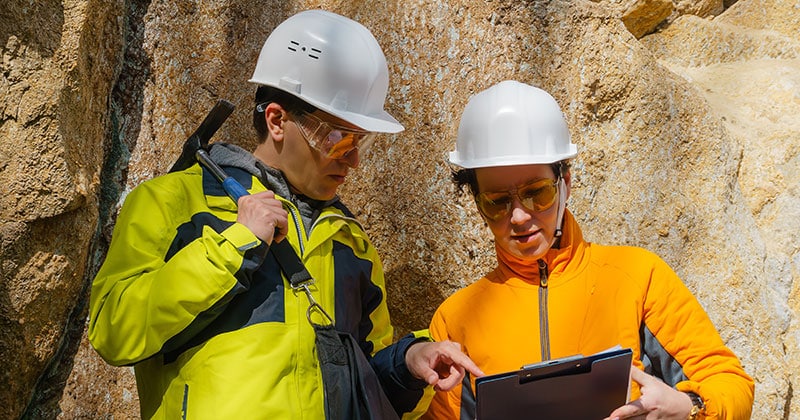
If you're fascinated by the earth and what lies beneath the surface of the ground, a career in this area could be for you. The geologist's focus is the earth and everything that lies beneath, studying structure, composition and nature. Geologists are often needed to provide advice on mineral extraction and land rehabilitation. Geophysicists gather measurements from beneath the earth's surface by using magnetic, seismic, electrical and gravity methods of data collection. To be a geologist, you'll need a degree in geology or geoscience. Geophysicists are usually required to have a degree in geophysics. If a career as a hydrogeologist – in which you'd be specifically studying bodies of water – sounds more up your alley, get a degree in that the discipline to help set you up for success.
Job titles: drilling geologist, engineering geologist, exploration geologist, geologist, geophysicist data processor, graduate geologist, graduate hydrogeologist, hydrogeologist, imaging geophysicist, junior hydrogeologist, junior rig geologist, project geologist, mine geologist, principal consultant (geology), project exploration geologist, resource geologist, rig geologist, senior exploration geologist, senior geologist, senior geotechnical engineer, senior hydrogeologist, senior mine geologist, senior resource geologist, senior staff geophysicist.
6. Veterinary Science
Do you love animals? Are you a strong science student? If your answer to both these questions is yes, think about starting a career in veterinary science. To become a veterinarian, you will be required to complete an accredited program at a university. Once you have graduated with your degree in veterinary science and you have decided on the state you want to practice in, you'll have to register with that state's veterinary registration board to be licensed to practice. If you'd prefer to be a veterinary nurse, you will require a minimum of specific certificate-level education and training.
Job titles: associate veterinarian, ECC veterinarian, emergency and critical care vet, emergency veterinarian, graduate veterinarian, head veterinarian, head veterinary nurse, lead veterinarian, locum veterinarian, senior veterinary officer, senior veterinarian, specialist – small animal medicine, specialist – small animal surgery, veterinarian, veterinary cardiologist, veterinary director, veterinary officer, veterinary nurse, veterinarian – internal medicine specialist, veterinary director, veterinarian – specialist surgeon, veterinarian (small animal medicine), veterinary surgeon, wildlife veterinarian, wildlife vet nurse.
7. Life Sciences
There are numerous different career paths available in the life sciences, which is the study of human, animal, and plant life. To pursue work in this field, you'll need an undergraduate degree at the very least. Many positions will require graduate education (frequently to the PhD level) as well and you could be working in a university environment. Other workplaces include, for example, medical research institutes and hospitals. Jobs in industry are also available, such as in pharmaceutical companies. Advanced observation and analytical skills are critical in this field. If you'd like a career as a life scientist, look into applying to graduate school in a life science field.
Job titles: biochemist, bioinformatician, botanist, environmental consultant, exercise physiologist, field applications specialist, microbiologist, microbiologist – veterinary diagnostic, microbiology analyst, molecular biologist, postdoc research associate, postdoctoral fellow, postdoctoral research fellow in biotechnology, QC microbiologist, QC microbiologist analyst, quality control technician (microbiology), quality manager, research assistant – biologics lead antibody discovery, rehabilitation consultant, research assistant, research assistant – antibody technologies, research assistant – molecular biologist, research fellow – molecular and cell biology, research officer, research scientist, senior technical officer (plant science).
8. Agricultural Science
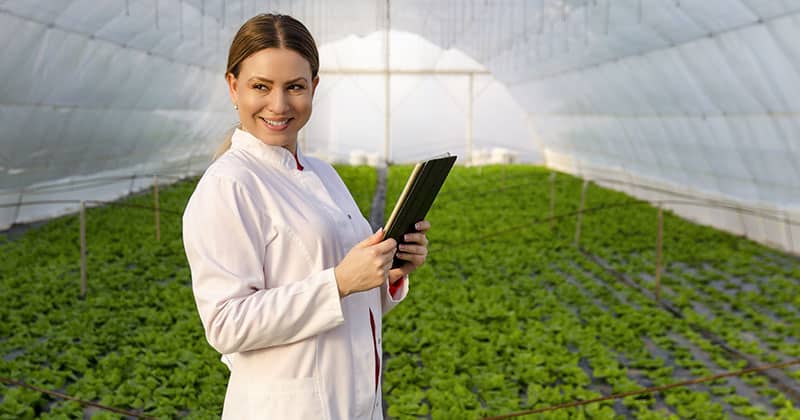
A career in agricultural science means that you're involved in studying, researching and analysing plants and animals involved in agriculture. You also examine cultivation methods to improve agricultural productivity. You probably work with farmers and other stakeholders, such as food manufacturers and government regulators. Attention to detail, analytical skills and resourcefulness are required for success in this field. Just some of the types of tasks you'll be carrying out include data collection (for example, the collection of soil, feed, produce, and water samples), analysis, project management (including equipment management, staff supervision and budget management), and research. A degree focusing on agricultural science will help you get started on this career path. If you already have another science degree, look into postgraduate education options.
Job titles: agronomist, postdoctoral fellow in soil science / agronomy, research fellow, research scientist, research scientist – cropping systems modeller, research scientist cropping systems modelling, sales agronomist, senior agronomist, senior scientist (research).
9. Chemistry

Can you imagine yourself working in a laboratory, making new discoveries? Do you have strong scientific aptitude? If so, consider becoming a chemist. Chemists determine the composition of materials by studying their chemical and physical properties. To succeed in this field, you'll need to be observant, detail-oriented and patient. Even more importantly, you must have an inquiring and curious mind. You'll need to earn a graduate degree (for positions with universities, often a PhD) in chemistry to become a chemist.
Job titles: application development scientist - food safety division, chemist, development chemist, formulations chemist, junior laboratory analyst, laboratory manager, laboratory safety officer – chemistry, offshore chemist, postdoctoral research fellow, process chemist, quality control chemist, research and development chemist, research scientist, senior chemist, vitamin analysis chemist.
10. Forestry Science
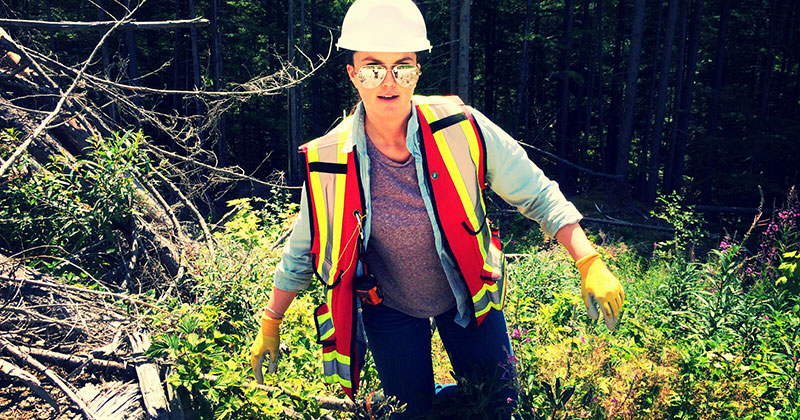
Forestry scientists must be versatile and observant, with high-level analytical and problem-solving skills. Managing forests requires the ability to embrace a multi-disciplinary vision and approach. You probably be working with professionals from other disciplines, such as the social sciences and commerce. As a forestry scientist, you might be required to understand how to manage land that combines natural forest and agricultural activity. This is sometimes referred to as farm forestry. A university-level science education with a focus on forestry is needed for a career in this field. Australian universities offer many relevant study programs. If you already have a biology or other related degree, you can enroll in a program of postgraduate study in forestry science.
Job titles: consultant – natural resource management, senior ecologist, senior lecturer in forest science and management, senior team leader native forest policy and programs, urban forestry officer.
Jobs in Australia
The in-demand science career streams in Australia are environmental science and medical laboratory science, in part due to government funding programs and government regulations. As well, pharmacy is a large employer of graduates with strong science skills.
If you are studying science and want career security, the job statistis indicate you may want to combine science with other disciplines such as business or information technology. Science vocations are relatively small in terms of total employment, suggesting a large proportion of science graduates use their degrees in non-science careers.
Projected job numbers by 2023
| Environmental Scientists | 28,116 |
| Pharmacists | 27,406 |
| Medical Laboratory Scientists | 25,738 |
| Other Natural and Physical Science Professionals | 18,632 |
| Geologists, Geophysicists and Hydrogeologists | 14,768 |
| Veterinarians | 12,069 |
| Life Scientists | 10,171 |
| Agricultural and Forestry Scientists | 9,295 |
| Chemists, and Food and Wine Scientists | 9,267 |
Source: Department of Employment, Australia 2019
Resources: Science graduate challenges (SMH)


